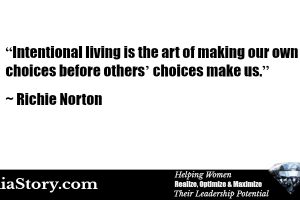When faced with adversity we have two choices: Overcome or be overcome. That’s it. When life happens, we don’t get to say “No thanks, I don’t want this challenge in my life. Can I please have an easy life instead?”
I read a recent article in the Wall Street Journal on resilience. The article talked about a study done in the 1960’s of 400 famous people, and it revealed that 75% of them had experienced very difficult childhood situations (poverty, abuse, absent parents, alcoholic parent etc). In fact, less than 15% of them had grown up in nurturing, loving, supportive homes. But, they didn’t let it stop them. That 75% went on to become successful thriving adults: Eleanor Roosevelt, John D. Rockefeller, and Louis Armstrong to name a few.
The American Psychological Association defines resilience as, “adapting well in the face of adversity, trauma, tragedy, threats or significant sources of stress.”
There is no doubt, children who grow up in a difficult environment are more likely to make poor choices as adults, and often simply continue the cycle of neglect, abuse, or poverty, etc. But, approximately 1/3 of us choose to become stable, confident, successful adults. And, regardless of what your childhood was like, there is no doubt life will be challenging as an adult too. Losing a job, facing debilitating illness, bankruptcy, the list of problems we face at some point in life is almost endless. Some of us face the challenges of life and meet them head on. Some turn around and try to run, but the problems catch them sooner or later anyway.
What’s the difference? What determines whether we overcome or whether we areovercome?
The difference is our Resilience Quotient. In other words, how resilient we are determines success in overcoming adversity and whether we see ourselves as victim or victor.
According to Meg Jay, the author of the article, “Coping with stress is a lot like exercise: We become stronger with practice.” (Which is why I got out of bed at 4:00am Saturday to run a half marathon in 23 degrees.)
My point: Resilience isn’t genetic. It’s not a character trait you are either born with or not. It’s a life skill we can develop. And, since we can develop it, there are resilience principles we can learn and apply to our lives and our situation to help us overcome adversity. We could call them the laws or principles of success and resilience. Like gravity, they always are at work, whether we are conscious of them or not. And like gravity, we can work with those laws or principles much better when we understand how they work.
I’ll be discussing one of these resilience principles every day this week, (one from each dimension of life: physical, mental, spiritual, and social) how to develop the skill of using it, and how to apply it, so look for my upcoming articles to learn more about developing your Resilience Quotient!
Interested in learning more about making 2018 your best year yet? Join me in February 2018 for a women’s retreat to learn how to overcome the past and create the future you want!
About Ria: Like many, I faced adversity in life. Raised on an isolated farm in Alabama, I was sexually abused by my father from age 12 – 19. Desperate to escape, I left home at 19 without a job, a car, or even a high school diploma. Watch my 7 minute TEDx Talk on Resilience here.



